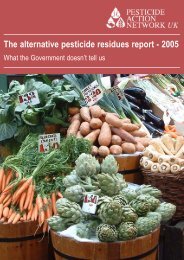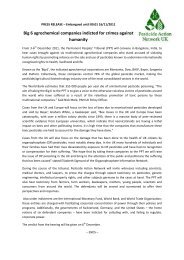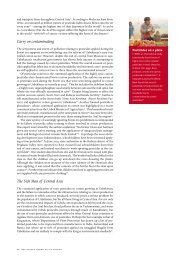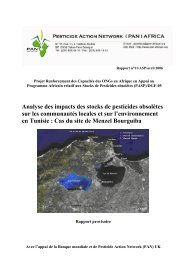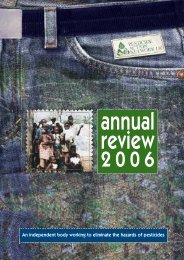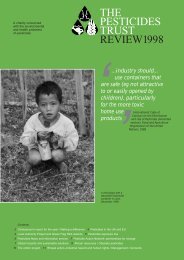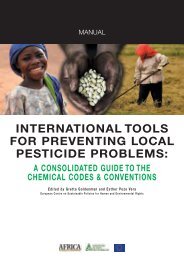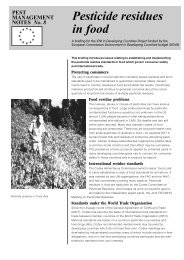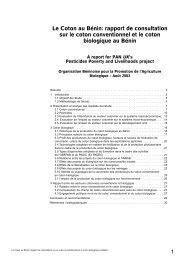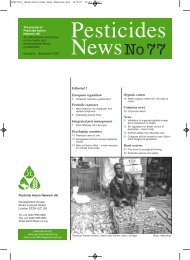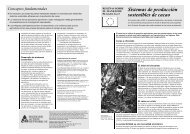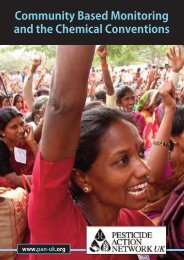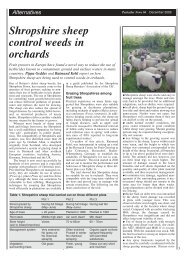Tanzania Multi Stakeholder Map - WebNG
Tanzania Multi Stakeholder Map - WebNG
Tanzania Multi Stakeholder Map - WebNG
You also want an ePaper? Increase the reach of your titles
YUMPU automatically turns print PDFs into web optimized ePapers that Google loves.
Activity 6 – CASE STUDIES - Documenting gaps<br />
between regulation and field: risk and mitigatio<br />
Case studies will be carried out to evaluate the<br />
situations or policies which illustrate the need and<br />
merit of international chemical conventions, or which<br />
facilitate the implementation or use of international<br />
conventions in <strong>Tanzania</strong><br />
International initiatives have benefits, but what difference can they make to finding solutions<br />
to problems created by the chemicals they govern?<br />
Prioritise studies should be linked to :<br />
‣ ASP, disposal and prevention (e.g.Vikuge DDT case<br />
study )<br />
‣ Severely hazardous pesticide formulations for PIC<br />
‣ Ecological monitoring<br />
‣ Community health monitoring<br />
Selected NGOs will carry out the study (ToR)<br />
‣ 6 case studies will be conducted: 2 per year<br />
‣ 2 under DGF<br />
Activity 7 - Pilot activities in support of policies<br />
for IPM and pesticide risk reduction<br />
To investigate effective ways to promote IPM<br />
Training in IPM for farmers,<br />
Promoting organic farming for small scale<br />
farmers.<br />
A field visit for policy makers, research,<br />
extension will be organised to<br />
‣ Encourage support,<br />
‣ To demonstrate the benefits and appropriateness<br />
of sustainable strategies.<br />
Activity 8 –communication strategy<br />
The project will be backed by a<br />
communication strategy.<br />
The communication strategy will aim to reach<br />
farmers, grass roots and other civil society<br />
organisations<br />
The communication strategy will focus on<br />
taking lessons and feedback from the field to<br />
the national workshops, international<br />
conferences, and CoPs.<br />
… Continued<br />
Activity 8 – Crosscutting activity:<br />
communication strategy (national)<br />
This will be done through<br />
Production and dissemination of annual progress<br />
report<br />
Feed into NIPs, ASP reports etc<br />
Writing briefings and reports, press releases, radio or<br />
TV panel discussions etc<br />
Participation in relevant meetings<br />
Train national and local media on issues (November<br />
+ WWF)<br />
Organise events to attract publicity e.g. visits to ASP<br />
disposal sites, IPM field visits<br />
Use opportunities of participation in CoP etc meetings<br />
to share results<br />
Finances<br />
80% of the project is funded by the<br />
Development Directorate-General of the<br />
European Commission through PAN UK.<br />
20% fund for year 1 was secured<br />
through Development Green Fund<br />
(GEF+WB)<br />
Thank you<br />
End<br />
18<br />
55




